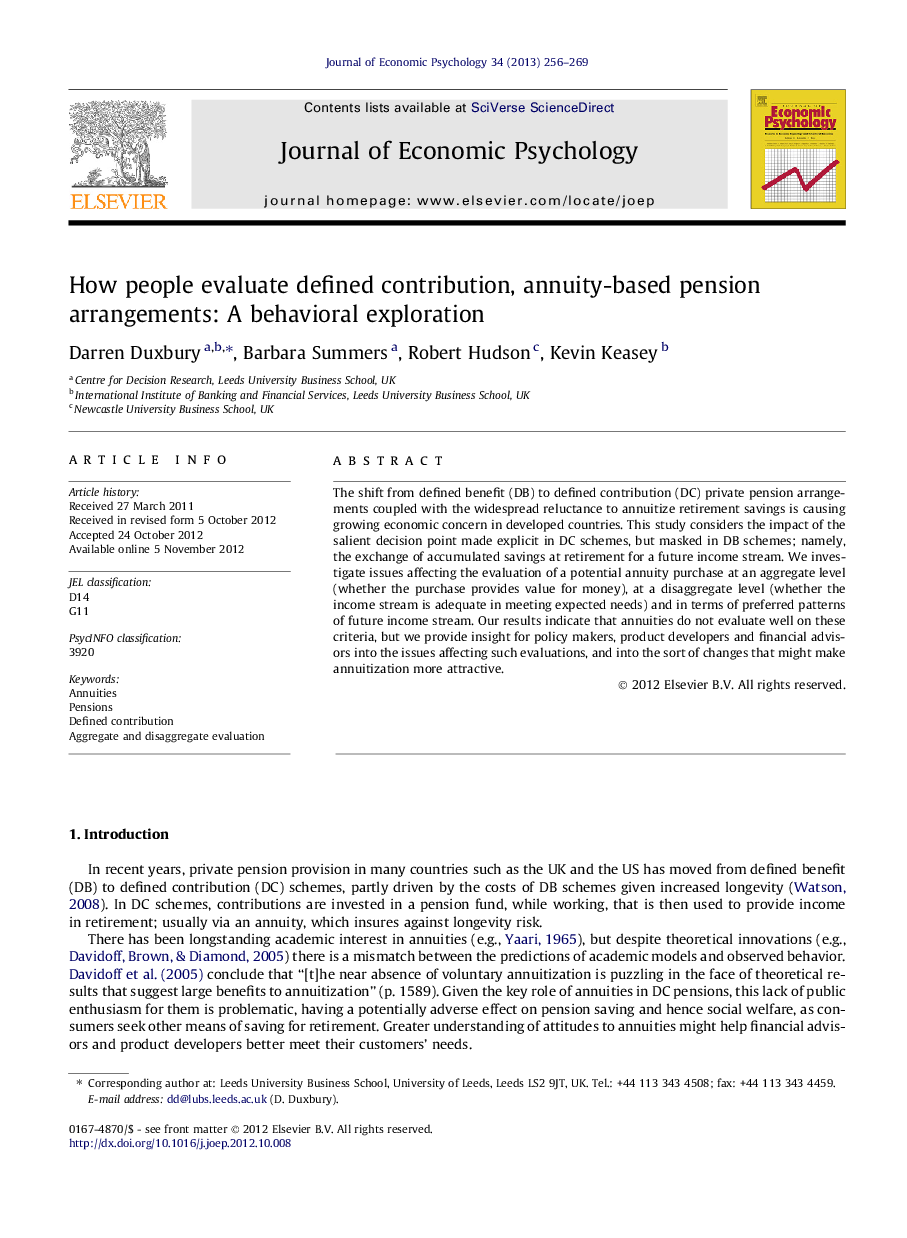| Article ID | Journal | Published Year | Pages | File Type |
|---|---|---|---|---|
| 885083 | Journal of Economic Psychology | 2013 | 14 Pages |
The shift from defined benefit (DB) to defined contribution (DC) private pension arrangements coupled with the widespread reluctance to annuitize retirement savings is causing growing economic concern in developed countries. This study considers the impact of the salient decision point made explicit in DC schemes, but masked in DB schemes; namely, the exchange of accumulated savings at retirement for a future income stream. We investigate issues affecting the evaluation of a potential annuity purchase at an aggregate level (whether the purchase provides value for money), at a disaggregate level (whether the income stream is adequate in meeting expected needs) and in terms of preferred patterns of future income stream. Our results indicate that annuities do not evaluate well on these criteria, but we provide insight for policy makers, product developers and financial advisors into the issues affecting such evaluations, and into the sort of changes that might make annuitization more attractive.
► Defined contribution pensions make salient the exchange of pension fund for annuity. ► Annuities not seen as good return on accumulated pension pot (aggregate evaluation). ► People are realistic about what would receive, but not as much as should receive. ► Seems driven by a heuristic, dividing pension fund by remaining life expectancy. ► Annuities do not provide enough income for retirement (disaggregate evaluation).
